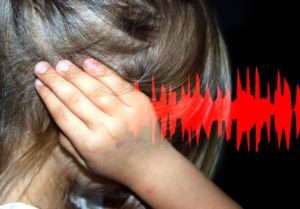
4 Tips For Managing Addiction Withdrawal Symptoms

4 Tips For Managing Addiction Withdrawal Symptoms : Over time, addictive substances such as drugs and alcohol can have a profound influence on your mind and body. For example, drug abuse disrupts the brain’s circuitry. It causes a chemical imbalance in your body, eventually leading to a dependency on the substance of abuse. As a result, breaking away from addiction during recovery triggers a drastic change in your body as it tries to return to its normal state by regulating biological processes.
Consequently, while the body is fixing itself, those suffering from addiction experience withdrawal symptoms. These can be anything from mild to life-threatening. Regardless of their severity, withdrawal symptoms threaten your life and your addiction recovery progress. Mismanaging withdrawal symptoms is often the cause of relapse in many patients. So, if you want to live a sober life in the future, be sure to understand how to manage your addiction withdrawal symptoms by following the tips mentioned below.
Get a medical detox
While you’re experiencing withdrawal symptoms, your body is naturally trying to detoxify and get rid of harmful substances. By going through a medically managed detoxification program, you can aid your body in recovery while reducing the effect of withdrawal symptoms.
A medical detox program is ideal for ensuring a safe drug addiction recovery. Skilled professionals provide medicines to patients to reduce cravings and control both psychological and physical withdrawal symptoms. In contrast, natural detoxification only causes you to experience severe withdrawal symptoms, increasing your chances of quitting addiction recovery.
When it comes to medical detox, it’s crucial to get help from a trusted facility. You don’t want to end up jeopardizing your treatment, as detoxification can quickly escalate into a severe issue if not handled correctly. So consider treatment plans offered by trusted rehab centers, such as the Delphi Health Group, to ensure a future free of addiction.
Follow a nutritious diet
Regardless of what you’re addicted to, substance abuse disorder can lead to the severe deterioration of your overall well-being. Patients undergoing treatment are still not able to fully recover from the health effects of addiction. But what’s worse is that withdrawal symptoms such as anxiety, nausea, depression, and body aches can degrade your health further. Without following a nutritious diet, your body and mind will eventually be overwhelmed by withdrawal symptoms, leading to relapse and other serious consequences.
The key is to follow a balanced diet with several different sources of nutrients, such as fruits, vegetables, meat, and dairy products. However, you can reinforce your diet by adding supplements for vitamins, as addiction hinders the absorption process after digestion. By consuming a healthy diet, your body will be able to stay fit even while losing nutrients in excess urination and vomit. But more importantly, you will remain motivated and in a good mood because of improved mental health and self-image.
Stay active
Exercise is an essential part of a healthy lifestyle. However, it’s imperative to include physical activity in your daily life to cope with withdrawal. You must understand that your body needs physical strength and support to overcome weakness and stress.
Physical activity such as going walking or jogging can help to balance your body’s chemistry and boost energy. Doing so will improve physical performance during addiction recovery. Regular exercise triggers the release of endorphins, also known as mood-boosting hormones. As a result, you will feel more relaxed and happier. You will be able to manage symptoms such as depression, stress, and nervousness. Moreover, according to research, staying active also helps distract you from cravings that may lead you to relapse.
Get support
Going through addiction recovery while facing withdrawal symptoms is no easy feat. But it can get even more challenging if you do not have support from friends and family. Spending time with your loved ones and talking to them serves as a form of therapy. It helps you stay motivated throughout the journey to sobriety. In contrast, staying isolated from everyone will only worsen your withdrawal symptoms such as depression and anxiety. After all, loneliness and depression share a strong link.
You can also join a support group with other patients in the same situation as yours. This helps you avoid relapse as you realize others are fighting the same fight as yours and share the same goals. Also, if you’re experiencing mental health issues during addiction withdrawal, consider talking to a therapist. Taking help from a mental health professional is one of the best decisions you can make to improve the effectiveness of your treatment.
Conclusion
Undoubtedly, going through addiction recovery is an incredibly challenging task. But if you’ve come this far into moving on from your addiction, you can’t risk losing your progress because of how severe your symptoms are. So, if you want to retain your motivation to continue the journey of overcoming addiction, remember to follow the tips mentioned above.
Related Videos about Tips For Managing Addiction Withdrawal Symptoms :
4 Tips For Managing Addiction Withdrawal Symptoms
Published at Fri, 31 Dec 2021 08:30:36 -0800





